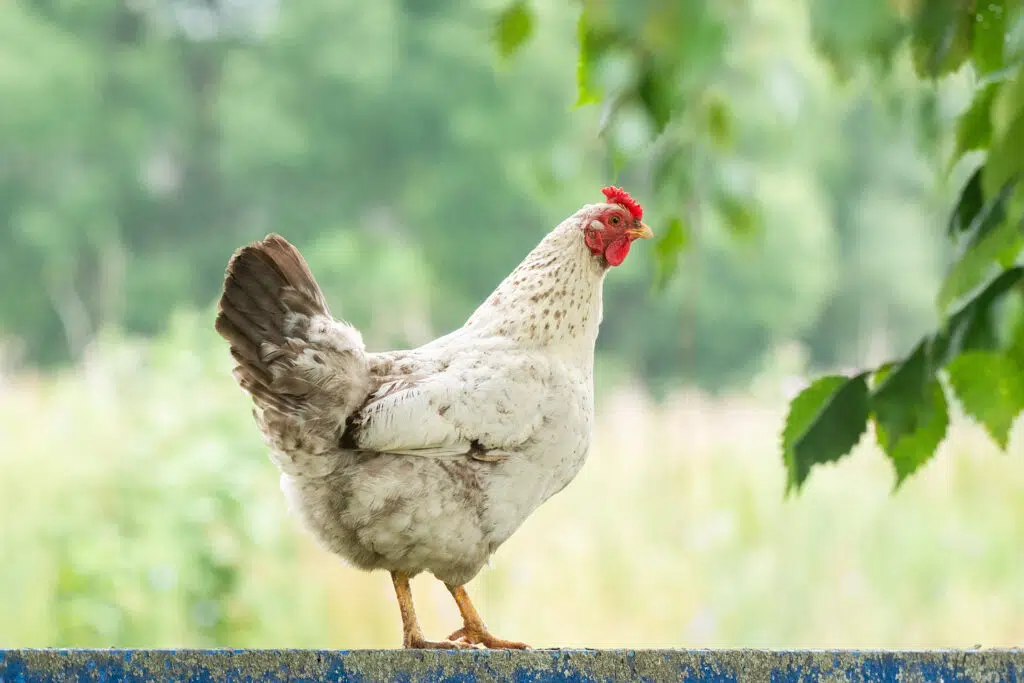When it comes to food, what's considered delicious or even safe in one country might be viewed quite differently in another. This is certainly true for some American foods, which, while popular in the United States, are banned or restricted in other countries. These bans often stem from concerns about health, safety, and the environment. From genetically modified crops to hormone-treated meats and artificial additives, the list of American food products that face restrictions abroad is surprisingly long.
1. GMOs (Genetically Modified Organisms)

In the United States, genetically modified crops are widely used in agriculture, resulting in the production of GMO foods. However, many countries around the world have restrictions or outright bans on the importation and sale of GMO products. The European Union, for example, has strict regulations on GMOs, requiring thorough testing and labeling. Countries like Austria, France, and Germany have even implemented full bans on the cultivation of certain GMO crops.
2. Growth Hormones in Beef

In the US, it is common practice to use growth hormones in cattle to increase meat production. However, this practice is banned in many countries, including all European Union member states, Japan, and Australia. These countries have concerns about the potential health risks associated with consuming hormone-treated beef, such as the possibility of hormone residues in the meat.
3. Chlorine-washed Chicken

In the United States, chicken carcasses are often washed with chlorine to kill bacteria and other pathogens. This practice is banned in the European Union due to concerns about the potential health risks associated with chlorine consumption and the preference for more traditional methods of poultry processing.
4. Food Dyes and Additives

Several food dyes and additives that are commonly used in the United States are banned in other countries due to health concerns. For example, the artificial colors Red 40, Yellow 5, and Yellow 6, which are found in many candies and processed foods in the US, are banned in several European countries. These countries have raised concerns about the potential link between these additives and health issues such as hyperactivity in children.
5. Potassium Bromate in Bread

Potassium bromate is a chemical used in the US to strengthen dough and improve the texture of bread. However, it is banned in the European Union, Canada, and several other countries because it is considered a possible carcinogen. These countries have opted for safer alternatives to achieve similar results in bread production.
6. Farm-raised Salmon

In the US, farm-raised salmon is often treated with synthetic astaxanthin, a chemical used to give the fish a pink color. This practice is banned in Australia and New Zealand, where there are concerns about the safety of consuming synthetic astaxanthin and the preference for naturally colored salmon.
7. Brominated Vegetable Oil (BVO)

Commonly used in the United States as an emulsifier in citrus-flavored soft drinks, brominated vegetable oil is banned in over 100 countries, including the European Union and Japan. The ban is due to health concerns related to the accumulation of bromine in the body, which can lead to thyroid issues and other health problems. As a result, beverage manufacturers in these countries use alternative ingredients to maintain the stability of their products.
8. Arsenic in Chicken Feed

In the US, some chicken feed contains arsenic-based drugs to promote growth and prevent disease in poultry. However, this practice is banned in the European Union because arsenic is a known carcinogen, and there is concern about its potential to accumulate in the body through the consumption of chicken meat. The EU prioritizes the use of alternative methods to maintain poultry health and prevent disease.
9. Ractopamine in Pork

Ractopamine is a feed additive used in the United States to promote leanness in pigs. However, it is banned in over 160 countries, including Russia, China, and the European Union, due to concerns about its impact on human health and animal welfare. These countries have strict regulations on meat imports, requiring certification that the pork is ractopamine-free.
10. Olestra (Olean)

Olestra, a fat substitute used in some low-fat snack foods in the US, is banned in Canada and the European Union. The ban is based on concerns about Olestra's potential to cause gastrointestinal issues and its ability to inhibit the absorption of essential nutrients. As a result, food manufacturers in these regions use alternative ingredients to reduce fat content without compromising consumer health.
11. Azodicarbonamide in Bread

Azodicarbonamide is a chemical used as a dough conditioner and bleaching agent in some bread and bakery products in the United States. However, it is banned in Australia, the UK, and the European Union due to concerns about its potential to cause respiratory issues and other health problems. In these countries, bread manufacturers use alternative ingredients to achieve the desired texture and color in their products.
Ready to make your first budget?
Enter your email and get the free template
12. High-Fructose Corn Syrup

While not outright banned, high-fructose corn syrup is subject to significant restrictions in the European Union. The use of HFCS is limited due to concerns about its potential contribution to obesity and other health issues. In contrast, HFCS is widely used in the United States as a sweetener in soft drinks and processed foods.
13. Artificial Hormones in Dairy

In the United States, it is common for dairy cows to be injected with recombinant bovine growth hormone (rBGH) to increase milk production. However, this practice is banned in the European Union, Canada, and other countries due to concerns about animal welfare and the potential health risks to humans, including the possible increase in cancer risk. Instead, these countries focus on natural methods to enhance milk production.
14. Genetically Engineered Papaya

The United States has approved the cultivation and consumption of genetically engineered papaya to resist the ringspot virus. However, countries like the European Union and Japan have banned the import and sale of this genetically modified fruit due to concerns about the long-term environmental and health impacts of genetically modified organisms (GMOs).
15. Farmed Shrimp Treated with Antibiotics

In the US, farmed shrimp are often treated with antibiotics to prevent disease. However, this practice is banned in countries like the European Union and Australia because of concerns about antibiotic resistance and the potential for residual antibiotics in the shrimp to impact human health. Instead, these countries have strict regulations for shrimp farming that focus on maintaining hygiene and health without the use of antibiotics.
“OK Boomer – You're Old Now” It's Probably Best To Stay Away From These Foods

Living and aging can be challenging, as it brings discomfort and limits our ability to perform everyday tasks. While medication and physical therapy can help manage the symptoms, adopting a healthy diet is another vital aspect of managing this condition. Certain foods have been found to worsen old age symptoms and should be avoided to promote better joint health.
How I make $11,000 per year renting out my spare rooms?
Get access to my FREE guide now.
“White Bread Is Poison” 10 Inflammation-Heavy Foods That May Cause Stomach Pain

If you suffer from inflammation, making mindful food choices becomes even more crucial. Certain foods can exacerbate inflammation in the body, leading to increased discomfort and potentially worsening the underlying condition. By avoiding these particular foods, you can take a proactive approach to managing inflammation and promoting overall well-being.
10 Foods People Hated as a Child but Love as an Adult

As children, we tend to be picky eaters and dislike certain foods that we might later grow to love as adults. Recently in an online discussion, people have revealed the foods they once hated but now enjoy. These stories show that taste preferences can change over time and that giving disliked foods a second chance can lead to newfound appreciation.
10 Gross and Overrated Fast Food Restaurants You Should Avoid

Fast food is a guilty pleasure for many people. While some fast food chains have a cult-like following, others leave much to be desired. A popular AskReddit thread asked users to name fast food places that are “grossly overrated.” The responses were varied and insightful. Here are ten of the most common answers.
“Never Will I Eat That” Foreigners Find These 10 American ‘Foods' Quite Unappetizing

When it comes to culinary experiences, every country boasts a unique and diverse range of dishes that may enthrall, surprise, or even challenge our taste buds. However, amidst the melting pot of flavors, there exist certain American foods that non-Americans often find perplexing, if not downright repulsive.
How I make $11,000 per year renting out my spare rooms?
Get access to my FREE guide now.
